Click here to learn more Attention Deficient Hyperactivity Disorder Greenville
So you wanna learn about the Paleo Diet, aka “the Caveman Diet,” eh?
This is one of the most popular diets on the planet right now (up there with the Keto Diet), and I bet you have questions.
Well I got answers, sucka!
And lots of LEGO photos.
In this massive guide, I’m going to give you the good, the bad, and the ugly when it comes to the Paleolithic Diet (click each link to go right to that section):
- What is the Paleo Diet and how does it work?
- Will I lose weight on the Paleo Diet?
- What can I eat on the Paleo Diet?
- What foods CAN’T I eat on the Paleo Diet?
- Can I eat grains on the Paleo Diet?
- Can I eat dairy on the Paleo Diet?
- Can I eat cheese on the Paleo Diet?
- Paleo Diet Shopping Guide: List of foods on the Paleo Diet
- What does a typical day look like on the Paleo Diet?
- Is the Paleo Diet dangerous?
- Paleo Recipes & Paleo Resources.
- Who shouldn’t do the Paleo Diet?
- How to do the Paleo Diet safely.
Now, this guide is SUPER long, so we took the liberty of converting it into a nicely designed guide for easy consumption (not literal consumption, unless you print it on bacon).
Grab your Beginner’s Guide to the Paleo Diet free when you sign up in the box below:
- Discover if Paleo is for you
- The one simple trick to know if your food is Paleo-friendly
- Easy Paleo recipes for beginners to get you started
If you can actually apply the rules of the Paleo lifestyle, you can get some pretty solid results.
As the great Mr. Flintstone once said, “Yabadabadooooo!”
What is the Paleo Diet and How does it Work?
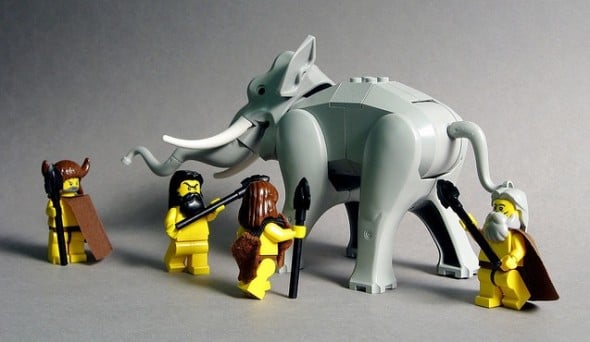
Oh lord, another “diet.”
I know, it sounds like a fad/marketing ploy, but The Paleo Diet isn’t really a “diet,” and it’s actually quite logical when you think about it.
It’s also the most time-tested diet ever.
Here’s the ENTIRE diet in a nutshell:
“If a cave person didn’t eat it, neither should you.”
As the theory goes, tens of thousands of years ago, before Nike, Cap’n Crunch, and Healthy Choice meals, our ancient ancestors thrived as hunter-gatherers.
Although it’s been a really long time, our genetics haven’t changed that much since then.
And yet…these days we’re overweight, out of shape, stressed out, unhappy, sleep deprived and dying from far too many preventable diseases due to lifestyle choices.
So what the hell happened?
Agriculture!
And then delivery and Netflix.
A few thousand years ago, humans discovered farming, the agricultural revolution took off, and we advanced from hunter-gatherers to farmers.
We settled down, formed societies, and the human race progressed to what we are today. Which is obviously great for a number of reasons:
- Not getting eaten by wild animals
- Electricity
- Automobiles
- Nintendo
The problem is that our bodies never adjusted properly to eating all the grains and sugar that we’re now consuming.
As paleo guru Robb Wolf puts it, think of a 100-yard football field:
The first 99.5 yards are how long Homo-Sapiens spent as hunter-gatherers. As they became REALLY good at hunting and gathering our bodies adapted to that lifestyle over thousands of years.
That last half-yard represents our species after the agricultural revolution, where our diet has shifted (but our genetics haven’t).
So, instead of loading up on meat, vegetables and seasonal fruits, we’ve become a species “dependent” upon grains – bread, pasta, rice, corn, and so on.
66% of us are overweight, 33% are considered obese, and those numbers are only getting worse.[1]
Clearly something’s not right, and we need to fix it.
The Paleo Diet is an effort to go back to our ancestral roots.
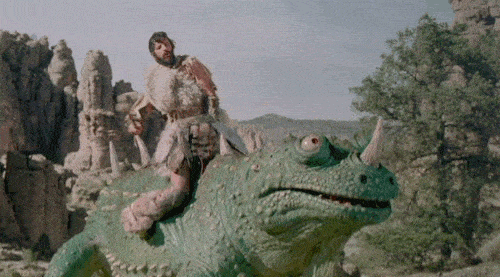
To start eating how we’re biologically designed to eat, allowing us to tap into our genetic potential and start living healthier immediately.
To recap the rules of the Paleo Diet:
- Only eat foods a caveman would eat
- See Rule #1
Note that it doesn’t mention calorie counting or meal timing or macro tracking. That’s part of the popularity of this diet: eat paleo approved foods when you’re hungry, and that’s it.
Will I Lose Weight on the Paleo Diet?
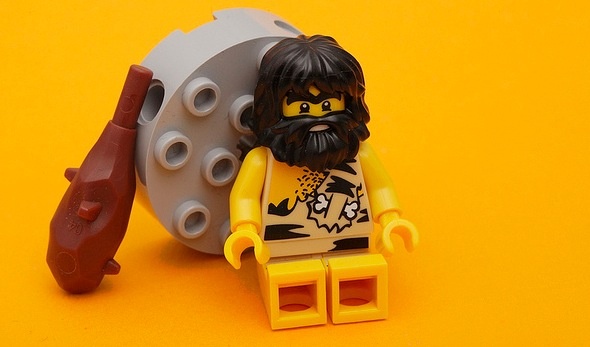
This is the question we get above all else:
“Will the Paleo Diet help me lose weight?”
Probably. If you can actually apply the rules of the Paleo lifestyle, you can get some pretty solid results.
It’s helped many people achieve jaw-dropping transformations, including my friend Saint, (whose story you can read here):
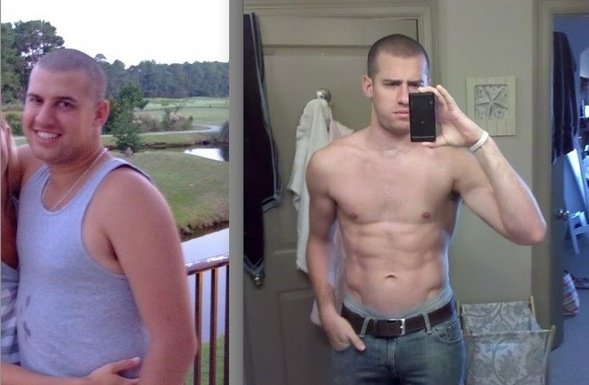
Or Staci from Team NF, our lead female trainer in our 1-on-1 Coaching Program):
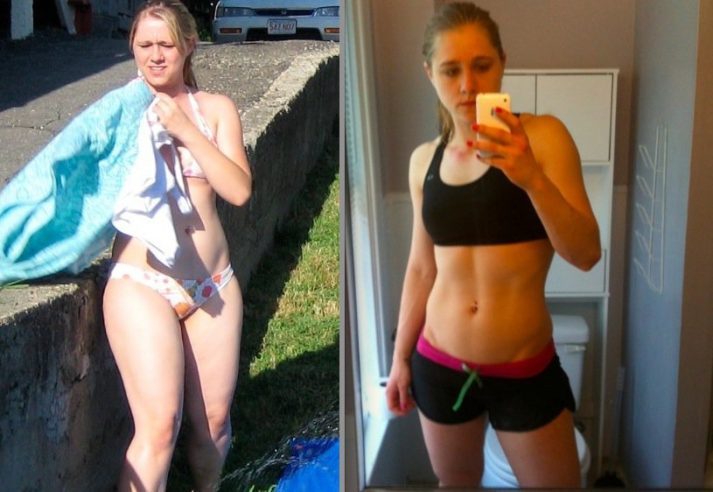
The Paleo Diet will work for you, if you do it right.
You need to have the right mindset, you need to focus on the right foods, and you need to structure your environment so that you’re not tempted to backslide and abandon the Paleo Diet after a few days.
However, it has nothing to do with what Fred Flintstone ate or didn’t eat.
It comes down to science and thermodynamics.
As I point out in our article on How to Lose Weight: What’s the Perfect Diet (For me?), if you want to lose weight:
- Eat fewer calories than you burn every day.
- Want to also be healthy? Eat mostly real food.
Want to KEEP the weight off?
Add #3: Do those two things consistently for a decade.
Here’s WHY you’ll lose weight on the Paleo Diet:
- You’re only eating meat, fish, veggies, fruits, and nuts. These are foods that are full of nutrients, will make you feel full, but don’t have nearly as many calories as junk food.
- You are completely eliminating calorie-dense, often nutritionally deficient, unhealthy foods. This means no grains (pasta, bread, rice), no dairy, no beans. It also means no soda, no candy, no sugar.
And yup. When you only eat real food and avoid all unhealthy food, you’re more likely than not going to run a caloric deficit – and thus lose weight.
Let me share a really obvious example.
200 calories of broccoli gets you enough to fill up an entire plate:
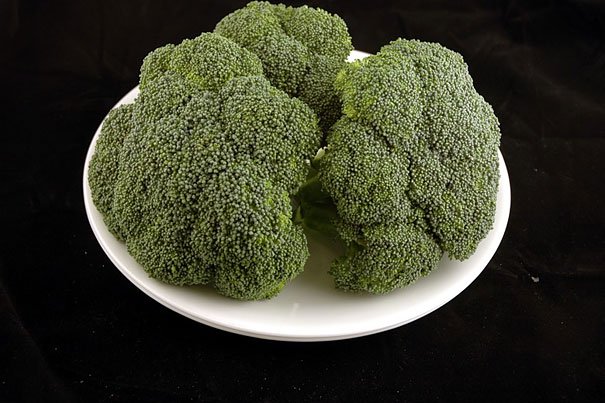
Or… 200 calories will get you exactly 1/2 a Snickers bar:
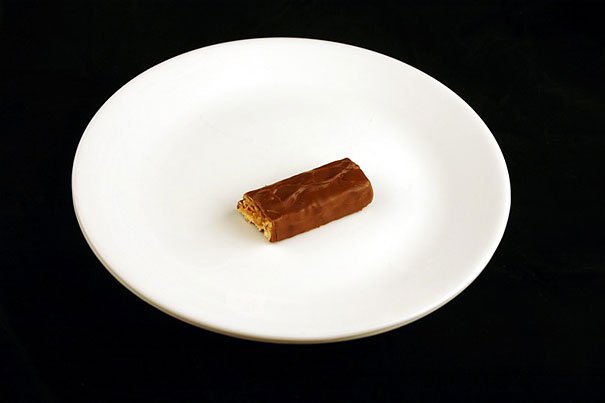
Look at that: nobody can eat that much broccoli, and nobody only eats half a candy bar!
My point is this: by eating Paleo-approved foods, you’re more likely than not to eat fewer calories than you did in the past automatically, which can lead to weight loss.
I dig into this in even greater detail in “Why can’t I lose weight?” but it all comes down to “calories in, calories out.”
So YES, the Paleo Diet MIGHT help you lose weight.
You just need to eat fewer calories than you burn every day (Here’s how to calculate your Total Daily Energy Expenditure). And that is easier when you are eliminating foods that people tend to overeat:
- Candy
- Soda
- Pasta
- Bread
- Dairy
But that’s all about what we’re eliminating. What are we keeping!?
what Can I eat on The Paleo diet?
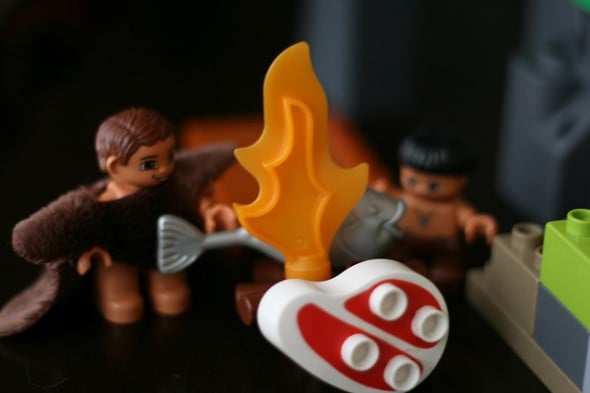
In order to follow the Paleo Diet Lifestyle, here are the foods that are Paleo approved:
- Meat* – steak, ham, pork, bison, boar.
- Organs – liver, kidneys, heart.
- Marrows – seeing a theme here? Eat ALL parts of the animal!
- Fowl – chicken, duck, hen, turkey…things with wings that (try to) fly.
- Fish – cod, tuna, salmon, and so on.
- Eggs – Look for omega-3 enriched cage-free eggs.
- Vegetables – spinach, broccoli, kale, carrots, peppers, zucchini, onions, etc.
- Oils – minimally processed, derived from plants: olive oil, coconut oil, avocado oil.
- Fats: ghee, lard, or other animal fats.
- Fruits – apples, pears, bananas, grapes, strawberries.
- Nuts – almonds, walnuts, cashews, and their respective butters (almond butter is so good!)
- Tubers – Sweet potatoes and yams.
*If you can, aim for grass-fed beef and organic fruits and vegetables. But don’t go break the bank with your food purchases. Just do the best you can.
As the Paleo Diet explains: Pick any of the foods from that list and eat as much as you want of them.
You might have noticed that a lot of the foods above are loaded with fat. And depending on what your mom told you growing up, you might think fat is the devil.
So let me address that right away…
Does Eating Fat Make You Fat?
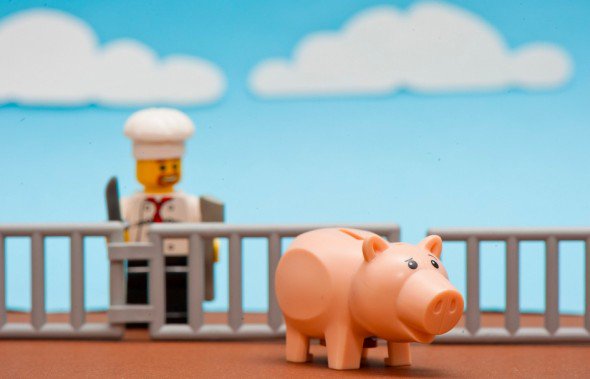
If you’re cutting back on carbs, that means you’ll need to fill the void in your diet with the most controversial macronutrient:
Fat!
It’s gotten a bad rap over the past number of decades, so companies have been doing everything possible to make everything low fat and “healthy!” (while adding all sorts of preservatives, chemicals, and sugar).
Yup…cut out the fat, increase the carbs….and look where THAT has gotten us.
Why has fat been vilified? Rather than get into the politics of it myself, I’ll let Gary Taubes, author of the incredibly thorough and well-researched Good Calories, Bad Calories take over.
As he discusses in an article he wrote for the New York Times a decade ago:[2]
These researchers point out that there are plenty of reasons to suggest that the low-fat-is-good-health hypothesis has now effectively failed the test of time.
In particular, that we are in the midst of an obesity epidemic that started around the early 1980’s, and that this was coincident with the rise of the low-fat dogma. (Type 2 diabetes, the most common form of the disease, also rose significantly through this period.)
They say that low-fat weight-loss diets have proved in clinical trials and real life to be dismal failures, and that on top of it all, the percentage of fat in the American diet has been decreasing for two decades.
Our cholesterol levels have been declining, and we have been smoking less, and yet the incidence of heart disease has not declined as would be expected. ”That is very disconcerting,” Willett says. ”It suggests that something else bad is happening.”
“Low fat” foods were created to follow conventional wisdom that fat made you fat (which as stated in the above article doesn’t stand up to scrutiny).
When a company makes a low fat food, they remove the fat and have to replace the flavor with something.
That “something” is usually sugar (and often more calories).
Crap.

So, according to Taubes and Paleo folks, fat has been vilified and the real focus should have been on sugar and carbs all along.
Because healthy fats are valuable additions to our diet.
Here are some examples of Paleo-Approved Healthy Fats:
- Avocados
- Almond (and almond butter)
- Fatty cuts of meat
- Walnuts
- Coconut oil
- Olive oil
In the Paleo Diet, fat makes up a large portion of one’s diet.
If you’re worried about consuming fat and how it will affect your cholesterol, read our Full Guide to Cholesterol
WhAT Foods Can’t I eat On the Paleo Diet?
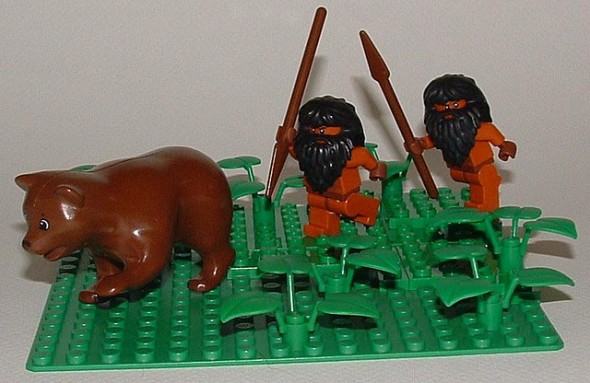
If you are looking to strictly follow the Paleo Diet, then you can’t eat foods that did not exist back in “Caveman times.”
Why?
Because – as advocates of the diet point out – cavemen couldn’t eat those foods because they didn’t exist. There was no way to create cereal and candy – you could only eat what you found or hunted.
So, that’s what the Paleo Diet advocates as the reason for avoiding these foods. And it serves as a good mental model to check with yourself: “Could a caveman have eaten this meal?”
And when you start to answer this question, you identify the foods that you’re not allowed to eat on the Paleo Diet:
- Grains like pasta, cereal bread, and rice
- Dairy like milk and cheese
- Candy, cookies, ice cream, and other processed foods
The Paleo Diet also almost completely eliminates sugar outside of fruit. No candy. No soda. No powdered donuts. Yup, even the mini white ones from the grocery store where you can eat like 100 of them (accidentally, of course).
Many studies have shown that an incredible number of diseases and lifestyle issues can be reversed by cutting out sugar and processed foods.[3]
But I understand grains and dairy are a bit more complex.
Let me explain:
Can I Eat Grains on the Paleo Diet?
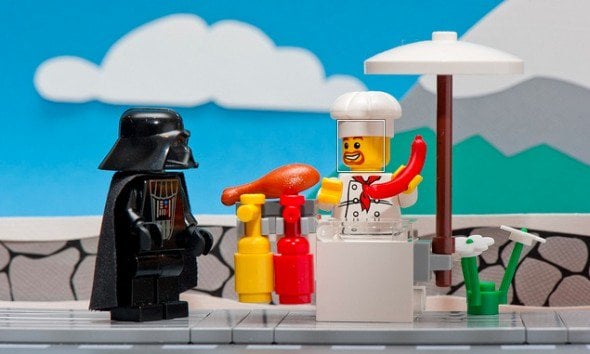
Unfortunately, nope.
The Caveman reason why: Grains require some amount of processing, and thus Cavemen would not have eaten them.
The science and psychological reason why: we have a tendency to overeat grains and the other “no no” foods on the Paleo Diet. They are calorically dense, nutrient deficient, and they can wreak havoc on some people’s blood sugar levels.
This leads to a sugar rush followed by a crash, which can lead to more emotional or hungry overeating…and the process starts again.
Rather than me explain that part with thousands of words, just watch this three-minute video – “Why You Got Fat:”
Let’s get into some more reasons Paleo advocates suggest avoiding grains: most contain gluten and lectins.
What are they and what’s wrong with them? I’m so glad you asked:
- Gluten is a protein found in things like rye, wheat, and barley. It’s now being said that much of our population may be gluten-intolerant (hence all the new “gluten-free!” items popping up everywhere). Over time, those who are gluten intolerant can develop a dismal array of medical conditions from consuming gluten: dermatitis, joint pain, reproductive problems, acid reflux, and more.[4]
- Lectins are natural toxins that exist in grains to defend against consumption! Yup. Grains have evolved to keep themselves from being eaten by us. These lectins are not a fan of our gastrointestinal tract, and they prevent the tract from repairing itself from normal wear and tear. This can cause all kinds of damage.
Long story short: many people cannot process grains properly, and they are usually the food that causes people to eat too many calories. So by eliminating grains from your diet, you’re more likely than not going to eat fewer calories without counting calories.
That’s a Paleo win!
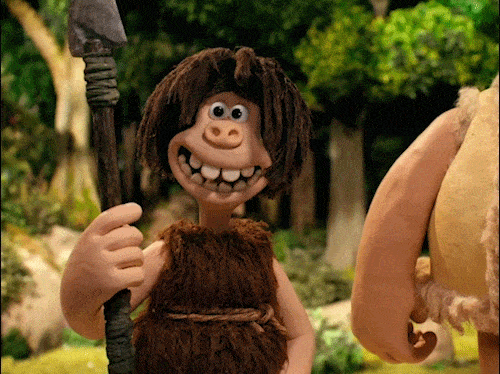
Do I Need to Avoid Carbs on the Paleo Diet?
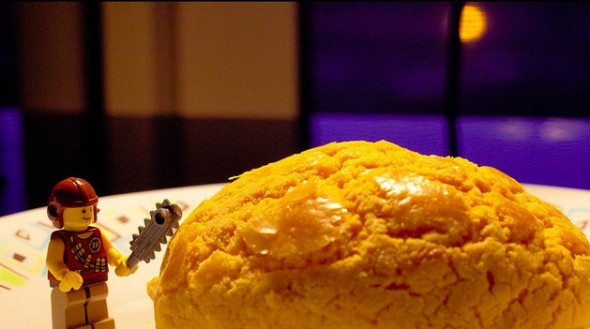
Not necessarily.
That depends on your goals and your body – you are a special snowflake!
Some people function well on a high fat, low carb diet.
Others function better on a high carb, low fat diet.
Personally, I function better on a higher carb, lower fat diet (which is how I lost 22 pounds in 6 months).
I will say the Paleo Diet is USUALLY a Low Carb diet, and large quantities of carbs are not required for somebody to be healthy regular diet.[5].
After all, carbs aren’t evil – they’re just…carbs.
Here is the logic and psychology behind why the Paleo Diet is low carb:
On a typical Western diet, we consume plenty o’ carbs, and our bodies convert those carbs to a sugar called “glucose.” This is our body’s preferred method of fueling itself.
In the absence of carbs to create glucose to fuel our bodies, we have to do a few other things instead:
- Transform stored fat into glycerol and fatty acids (this process is called lipolysis).
- Burn fatty acids for energy or transform the fatty acids into glucose for energy (this is called gluconeogenesis)
- In the absence of glucose (through fasting or following a Keto Diet), your body can create ketones for fuel (called “ketogenesis”).
We’re going to focus on the forms of weight loss NOT related to “ketogenesis.” Unless you are avoiding all carbohydrates while going Paleo, or you are doing long fasts, you most likely won’t be in ketosis while going Paleo.
We do cover Paleo vs Keto: Which is Better if you’re deciding between the two.
Back to weight loss and Paleo: when you cut back on carbs, and thus most likely ALSO cut back on total calories consumed, you are creating a caloric deficit in your body.
And eat a consistent deficit over a long enough time period, BOOM caveman weight loss.
So, fewer carbs = less glucose in your system, less sugar crashes, less “hangry” moments and smaller chance of overeating = fewer calories consumed on average.
If you’re worried about adherence to the diet, I understand – it’s the toughest part of Paleo – sticking with it!

Knowing what to eat is part of it, but following this fairly restrictive lifestyle in a modern environment surrounded by cookies and candy and bagels and pasta is really difficult!
If this whole “Paleo, Carbs, and Weight Loss” thing is stressing you out, you’re not alone!
In fact, people like you are the reason we created our 1-on-1 Online Coaching Program!
We work with busy people like you to structure a complete life overhaul: handcrafted workout routines, accountability, mindset changes, and nutritional strategies.
Can I eat Dairy on the Paleo Diet? Can I eat Cheese On the Paleo Diet?
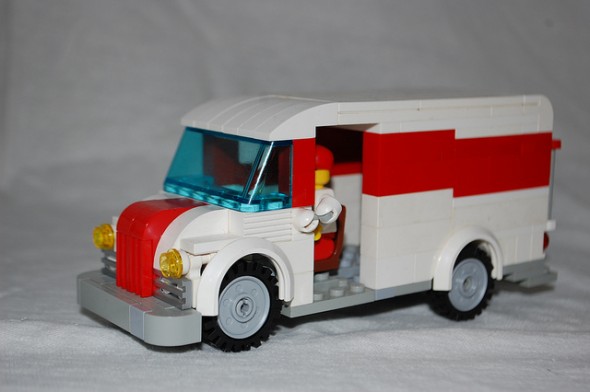
This also depends. Strict Paleo folks tend to stay away from it – a portion of the world is lactose intolerant, and those that aren’t usually have at least some type of an aversion to it.
Why? Because hunter-gatherers didn’t lug cows around with them while traveling – milk was consumed as a baby through breast milk from their mother, and that was it.
So as Paleo-stans will tell ya, our bodies weren’t designed for massive dairy consumption.
There is evidence that some adaptation to dairy has taken place throughout the years, specifically with people with ancestry in herding cultures, but this is not the majority of the population.[6]
Paleo purists will avoid dairy like the plague, while other paleo-ish people have found that consuming dairy in its various forms work for their genetics, goals, and lifestyle.
“What about Cheese? Can I eat cheese on the Paleo Diet?”
You do you, boo. But if you’re going Strict Paleo, then unfortunately cheese is OUT too.
If you’re just looking to lose some weight while following a “mostly Paleo” lifestyle, then adding some high quality cheese into some of your meals can be okay.
Some cheeses will tend to have lower amounts of lactose or casein – the parts of dairy that can cause digestion challenges.
So, if you’re not sure your body is processing dairy properly, remove dairy from your diet and only introduce it back in when you’re ready to see how your body responds.
If you’re not losing weight while eating a “Paleo + Dairy” Diet, you’re still eating too many calories.
Consider cutting out dairy and see how your body responds.
Paleo Diet Shopping Guide: List of Foods on the Paleo Diet
Because I like you as a person, I’ve created a printable Paleo Diet Shopping List PDF you can bring with you to the grocery store to help you decide what to buy and what to avoid.
Simply right click on the image below and save as:
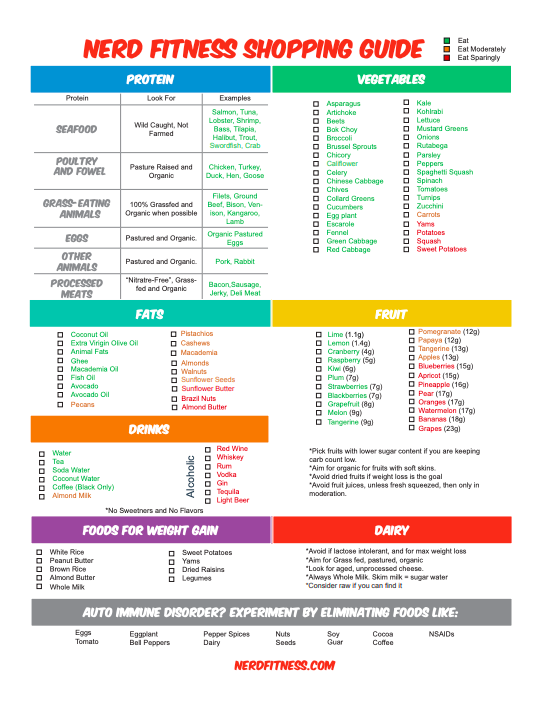 Feel free to print this out and bring it with you to the grocery store. If you happen to run into somebody else who has ALSO printed out this sheet, feel free to high five each other while singing Baltimora!
Feel free to print this out and bring it with you to the grocery store. If you happen to run into somebody else who has ALSO printed out this sheet, feel free to high five each other while singing Baltimora!
What is a Typical Day Like on the Paleo Diet?
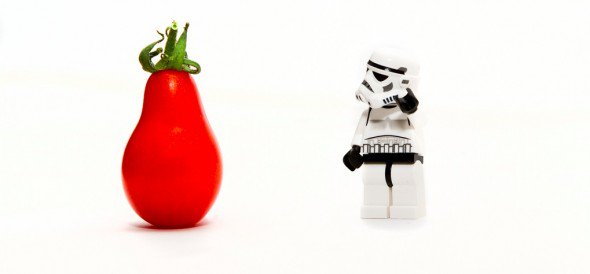
Here is an example of a typical day on “The Paleo Diet”:
- Breakfast: Omelet with spinach with fresh fruit.
- Lunch: Grilled chicken, kale, and avocado salad with vinegar and olive oil.
- Snack: Apple slices and almond butter.
- Dinner: Steak with asparagus and sweet potato fries.
- Dessert: Strawberries and a piece of 85% dark chocolate.
That doesn’t sound so bad, right?
Make sure you check out our Paleo Diet Recipes and Resources section too for more options.
Start with a good protein source with each meal (eggs, steak, chicken, fish, pork) and then add a vegetable or fruit.
That’s it.
If you feel hungry constantly, understand that changing up a diet can cause a body a few weeks of adjustment.
Remember, your body is learning to operate on both fewer calories AND fewer carbs – depending on how low carb you go this could be a DRAMATIC change.
And this is often referred to as “carb flu,” and it can be miserable! Your body might take multiple weeks to adjust to these new habits.

Going from a processed, high sodium diet to a paleo diet you will very often end up eating too little sodium, which is an essential nutrient.
So if you’re feeling tired all the time, try adding some salt to your food or consider an electrolyte supplement – this is what we recommend with our Keto readers too.
Is the Paleo Diet Dangerous?
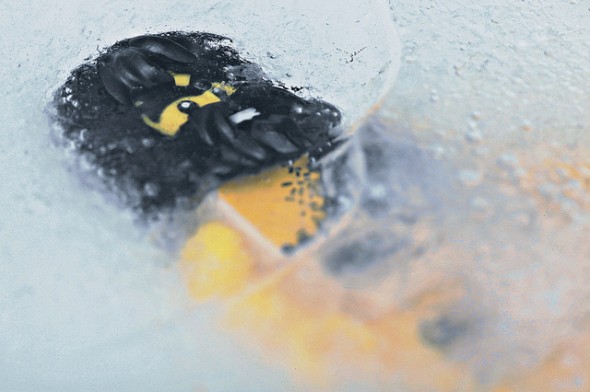
The dismissive criticisms of the Paleo Diet generally fall into one of three categories:
- Cavemen had short lifespans. So there.
- A recent article said that cavemen ate grains. So there.
- Eating that much meat is unhealthy. So there.
As I said at the beginning of this article, it doesn’t matter what cavemen or cavewomen ACTUALLY ate.
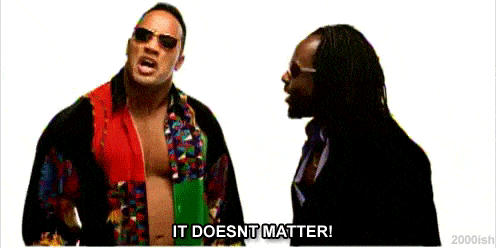
The reason this diet works has nothing to do with what our bodies are designed to eat or what cavemen ate 1,000s of years ago.
The Paleo Diet CAN help you lose weight because it gets you to cut out junk food, focus on eating real food, and gives you a framework to evaluate quickly every food choice:
“Did a caveman eat this? Yes or no.”
That’s it!
By following this ONE rules, you’re likely to eat fewer calories than you used to, and thus you’re likely to end up healthier than before.
I personally don’t follow a Paleo Diet, but I do appreciate the fact that it’s easy to comprehend and gets people to take a more active approach in their food!
So, disregarding the fear mongering, dogma, and anthropological criticisms of what cavemen actually ate, what are the ACTUAL critiques of the Paleo Diet?
#1) “Why is the Paleo Diet expensive?”
Admittedly, while I recommend eating organic fruits and veggies, free-range chicken, and grass-fed beef whenever possible, these products can be more expensive in conventional stores due to the processes needed to get them there.
However, farmers’ markets often have well-priced meats, eggs, fruits, and vegetables that are locally grown and incredibly healthy.
Even if you’re spending a little more money than before, when you factor in your overall health, spending a few extra bucks on healthier food now is a wiser investment than thousands later on costly medical expenses.
Also, if you’re really short on cash, eating the non-organic or grain-fed version of a meat, vegetable, or eggs is still better than eating breads, pasta, fast food, and the like.
Most people simply compare the cost of a paleo meal with ramen noodles or pasta and bread and determine Paleo is prohibitively expensive.
Sure, it’s more expensive than those foods, but if you are smart with your money you can eat a much healthier meal and do so pretty inexpensively. Check out this guide on “How to Eat Healthy Without Breaking the Bank” for some tips and tricks.
(This doesn’t even factor in the whole “if you eat cheap unhealthy food now, you’ll pay thousands in medical bills and hospital visits and medications later” argument which is valid too).
#2) “But cavemen had short lifespans! Of course they don’t have the diseases we do. We live way longer now.”
I agree with you here, but only because you don’t have to deal with the dangers of living back then. Again we don’t really care to live like cave people!
This is SIMPLY a construct that can help many make more informed food choices.
#3) “Plenty of societies around the world consume grains and aren’t fat and unhealthy like us.”
Awesome – it seems like those people have found a solution that works for them. Have you read our big ass guide to eating a Plant-Based Diet?
The China Study is frequently cited when criticizing the Paleo Diet – focusing on a vegetarian diet and consuming rice is healthier than the Paleo Diet. I respectfully disagree with the conclusions drawn from that book but that’s awesome if you want to go plant-based! [7] I’ll leave you to make your own conclusions based on your own self-experimentation.
You’re here to learn about the Paleo Diet though, so let’s keep the focus there.
#4) “But this is just a meat diet, and eating all meat is bad!”
First of all, consider your sources and do your research before jumping to the conclusions.
Next, this is not an all meat diet like the Carnivore Diet or uber-low carb diets like Keto or Atkins. The biggest component of the Paleo Diet?
Vegetables!
Every meal in a true Paleo diet has a moderate amount of healthy (properly raised chicken, grass-fed beef, hormone free, etc.) meat combined with nutritious veggies or a moderate amount of fruit.
#5) “The Paleo Diet is too restrictive and I can’t live like this.”
This is the most valid criticism I personally have of the diet, as the best diet plan is the one you actually stick with and follow through on! The goal shouldn’t be to go “full paleo” for a few weeks only to go back to how you were eating before.
Instead, the goal here should be to rethink your relationship with food and develop a strategy that you can live with permanently.
There’s nothing worse than going on diets and gaining and losing the same 20 pounds over and over. The Paleo Diet, like other diets, WORKS ONLY IF YOU STICK WITH IT PERMANENTLY!
This makes sense after all: make temporary changes, get temporary results, right?
#6) “Steve, I hate vegetables. How do you make vegetables taste better? HALP.”
I got you. Heres how to start liking vegetables and how to make vegetables taste better.
We know this all too well, and we have helped thousands of people slowwwwly transition their diet over a long period of time to make change less scary, more permanent, and thus make the weight loss permanent too!
If you’re overwhelmed or scared of changing too much, or maybe you’re just sick of dieting and want to find a solution that works for your busy lifestyle and situation, schedule a call with us to learn more about our 1-on-1 coaching program:
Paleo Recipes and Paleo Resources
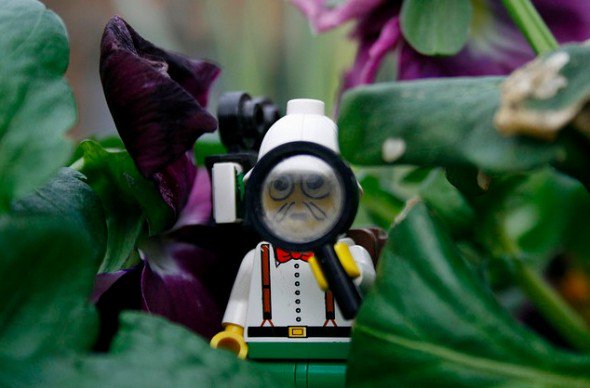
Here’s our full list of Nerd Fitness Paleo/Healthy recipes, and here are my three favorites:
- 10 Minutes of Prep, 10 Easy Meals
- Paleo spaghetti: freaking delicious, I promise
- How to Make Mini Paleo Pizzas.
I’ve also compiled a list of my favorite sites and recipe books around the internet that can help you get started:
#1) Nom Nom Paleo – Michelle Tam and her husband Henry are amazing people, and their Paleo Blog is absolutely phenomenal. Great photos. Well written. Organized intelligently.
Their “Nom Nom Paleo” cookbook is a fun resource too, and a great place to get started with cooking for your Paleo lifestyle. Oh, what’s that? You have kids and a spouse and you’re all trying to eat healthier too? This book is perfect for that as well!
#2) Mark’s Daily Apple – Easily the most comprehensive resource on the internet for the Paleo Diet – Mark writes an article every weekday about everything Paleo, and it usually blows me away. Some of the posts can get overwhelming, so I suggest starting with his Primal Blueprint 101.
The Primal Blueprint – If you want to read about this stuff in a book rather than on a computer screen, Mark’s book The Primal Blueprint is a great place to get started on not only what to eat, but why you should be eating it.
It’s educational, funny, real-world applicable, and teaches you how to primalize (just made that up) the rest of your life too.
#3) Robb Wolf – Another great resource, and a guy I’ve already referenced in this article multiple times. Check out his site for a comprehensive FAQ on all things Paleo, a shopping list pdf (right-click and save), and plenty of humor.
The Paleo Solution – This article would have been finished 3 hours earlier, but before I wrote it, I read ALL of Robb’s new book. It seriously had me laughing out loud at certain points – not bad for a book on diet!
This book is a little less forgiving than Mark’s book above, but it’s still a great read.
#4) Loren Cordain – Loren is considered the leading expert on the Paleo Diet – Robb is actually one of his students/disciples/Padawans.
Dr. Cordain is probably the foremost authority on this type of eating, which is why I really enjoyed reading both of his books.
MORE RECIPE RESOURCES:
- Ready or Not! 150 Make Now Recipes – The newer book from Michelle Tam of Nom Nom Paleo. It’s super fun. Plus she’s wearing a Nerd FItness t-shirt in some of her photos in the book, so I might be sliiiightly biased 🙂
- Mark’s Daily Apple – Although he sells the cookbook on Amazon, Mark also lists over 100 free primal recipes on his site. Pick something on the list, go buy the ingredients, and follow the instructions! So easy even a caveman can do it.
- Everyday Paleo – Great pictures, easy to follow recipes, and pretty interesting combinations. Click on FOOD in the Nav bar, and the meals are broken down into breakfast, lunch, and dinner.
If you’re curious about The Paleo Diet’s recent popularity and thus it’s criticisms, we’ve written two other pieces on Nerd Fitness that might be of interest:
“The Paleo Diet Debunked??” where I address a few of the more recent criticisms that have popped up.
“In Defense of a Paleo-Ish Diet” where I cover how to live a mostly Paleo lifestyle but still enjoy the modern benefits of society.
Who Should and Who Shouldn’t Do the Paleo Diet?
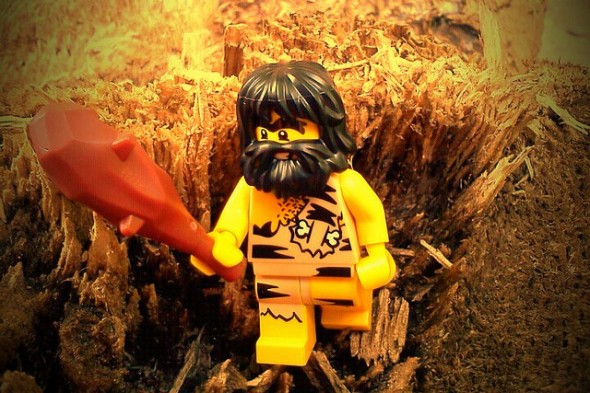
I’m a fan of the Paleo Diet for the RIGHT person:
I love mental models that help us make sense of the world, and I think for SOME people, the Paleo Diet will really help them cut down on overeating.
I personally do NOT follow a Paleo Diet, but I do have rules that I follow.
Do whatever makes you happy and fits in your schedule. I like this kind of stress-free eating.
Regardless of whether or not grains should be vilified, I love this diet because I know it WORKS. I know people that have lost incredible amounts of weight and changed their lives within a matter of months.
People like Staci:
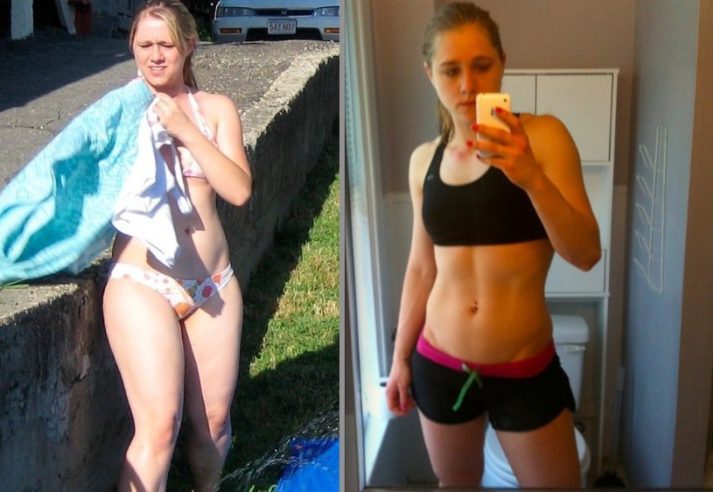
Regardless of how you feel about grains, we can all agree that eating more natural foods and less processed foods is better for you.
YOU SHOULD DO THE PALEO DIET IF:
- You struggle with portion control (meaning you can’t eat just one cookie, or you tend to keep eating even when you’re full).
- You can stick with the changes you’re making permanently! Remember, temporary changes create temporary results.
- You don’t mind eliminating some of your favorite foods completely.
YOU SHOULD NOT DO THE PALEO DIET IF:
- The idea of giving up non-paleo foods makes you want to cry.
- You don’t mind learning about calories and want to track your food.
- Another diet sounds like a better fit for you!
Consider some of these other options instead:
- The Mediterranean Diet which still includes portions of things like pasta or bread (note: I said PORTIONS, not platefuls)!
- Our guide on healthy eating and slowly adjust your nutrition – which would be my recommendation.
- My paleo-ish dietary philosophy that keeps me healthy and happy.
If you want to lose weight and keep it off, you need to make permanent adjustments to your nutrition.
If you don’t see yourself being able to permanently follow a Paleo Diet, I would advise a more ‘wade in from the shallow end‘ approach to dietary change!
How to Do the Paleo Diet Safely
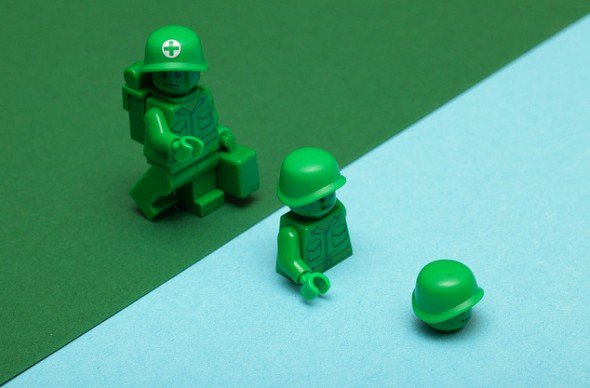
Maybe you’re ready to try out this Paleo lifestyle, but you can’t commit fully. There are certain foods you refuse to give up, or you can’t afford to buy grass-fed beef at the moment.
That’s okay!
If you can even make a few small changes here and there (cut out liquid calories, switch out your rice for steamed vegetables, cut back on bread, etc.) you’ll start to see some changes.
Remember, 20% healthier is better than 0% healthier – as you get more comfortable with the changes you can increase that percentage.
After all, I know how tough it is to stay loyal to a strict diet, especially without a plan to follow. It’s why we created free resources that can help you reach your goals faster without you also going crazy.
Get rid of the temptation: if you’re gonna go at this thing with a full head of steam, remove all the junk food from your house.
It’s going to take a few weeks for your body to adjust to burning fat instead of glucose, and you might want to eat poorly here and there. If there’s no food in your house to tempt you, it will be much easier to stay on target.
Now, it’s your turn.
- Have you tried the Paleo Diet yet?
- What was your experience like?
- Have a criticism of the diet that I didn’t cover before?
- Do you have a favorite paleo resource?
Remember, one of the major Rules of the Rebellion is to question everything!
I hope this article gives you some food for thought (terrible pun, I know), and gives you permission to question conventional wisdom and start addressing the issues in your diet!
In addition to this Beginner Paleo Guide, I hope you consider checking our 1-on-1 Coaching Program as well.
We have designed this program from the ground up to help people like you change their lives and fix their nutrition in a way that doesn’t suck.
Now, go forth. And eat like a caveman.
-Steve
PS: I’ll leave you with a mention of the Nerd Fitness Academy – it essentially gamifies your experience in transitioning into a Paleo lifestyle and diet, and provides you with specific instruction, meal plans, workouts, and a supportive community.
###
photo sources: cavemen elephant hunt, caveman cooking over fire, cavemen hunt paleo bear, milk truck logo, darth vader vendor, storm trooper tomato, lego cook, chef and lego pig, lego explorer, lego muffin, lego bread and carbs, frozen caveman grok lego, lego clock, lego caveman forging for food, caveman with wheel, darth vader and ostrich lego, easing into water lego, lego man with pasta
Visit us at Neurofeedback Concussion Greenville
from Greenville Brain Training http://bit.ly/2iigba0
via IFTTT
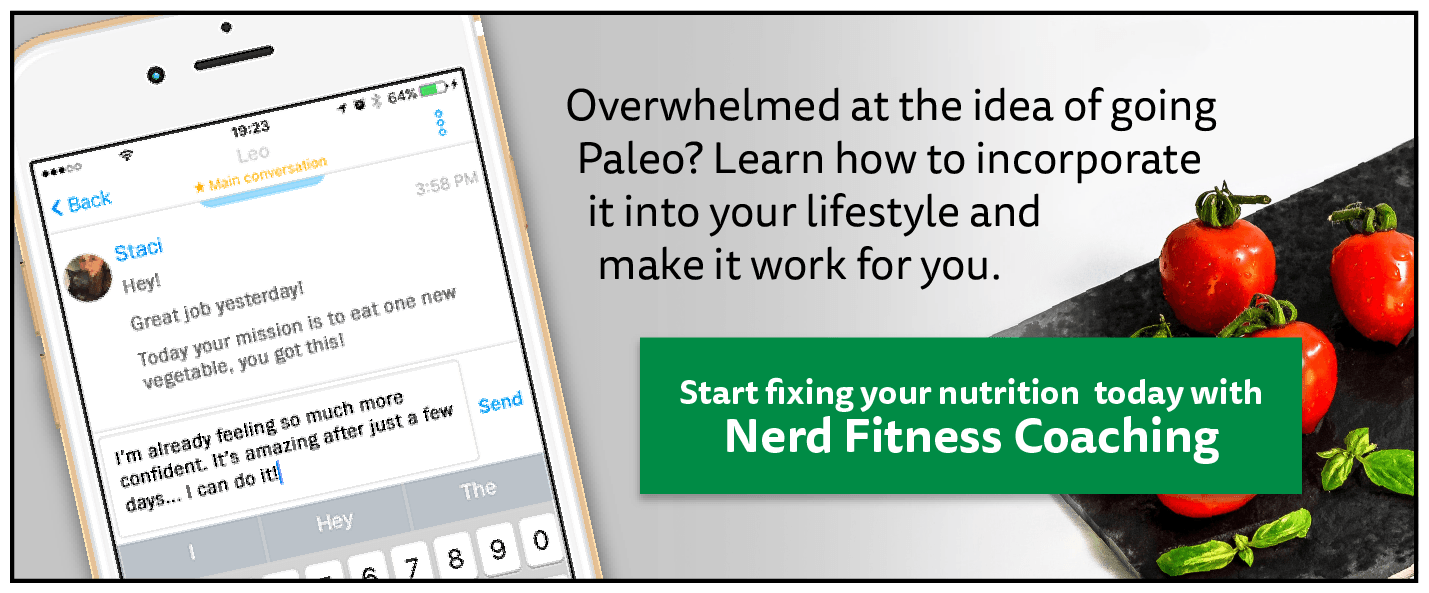
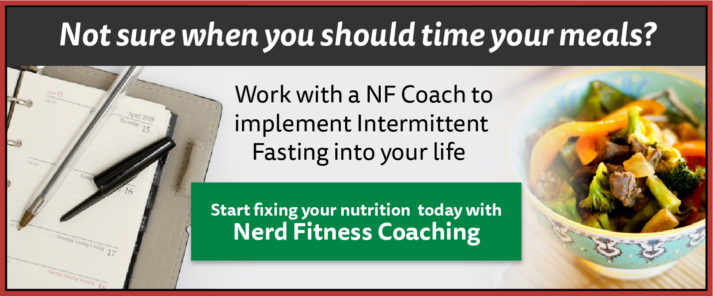
Comments
Post a Comment